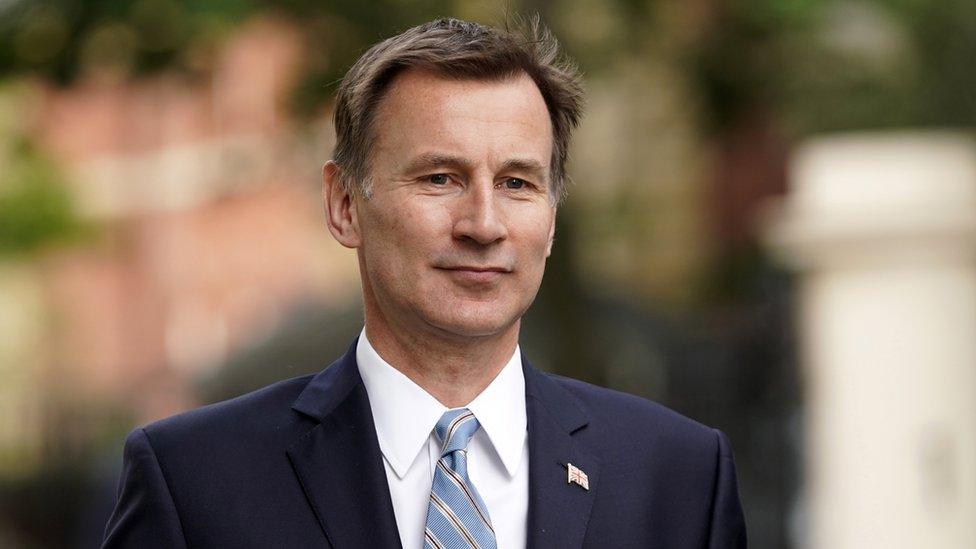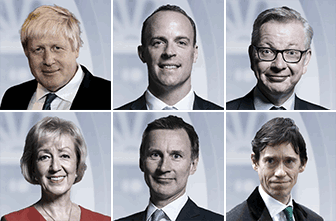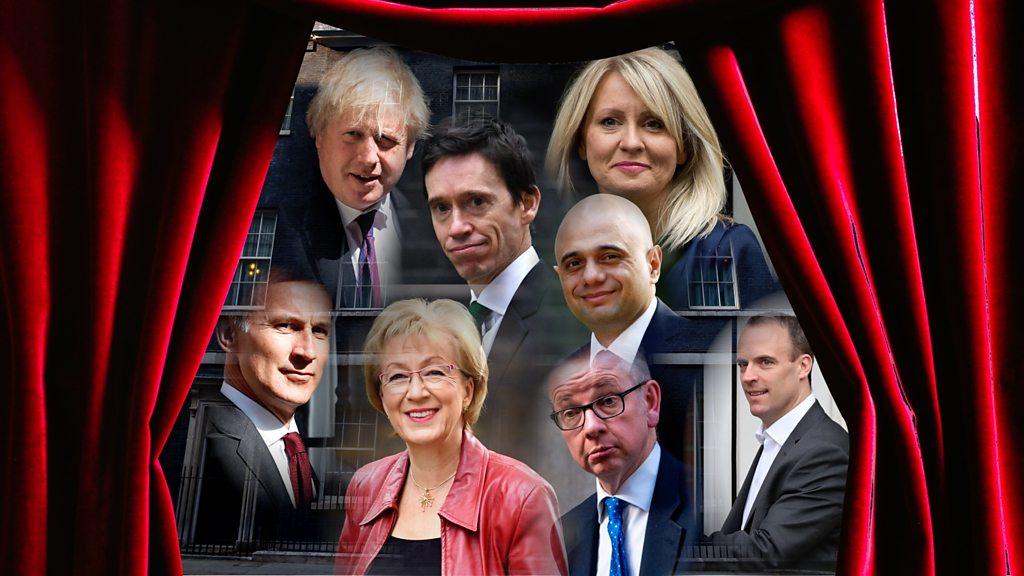Jeremy Hunt warns over 'hard-line' Brexit approach
- Published

Tory leadership candidate Jeremy Hunt has warned against taking a "very hard-line approach" in future Brexit talks.
The foreign secretary told the BBC this would provoke a "very hard-line response" from Brussels and would not resolve the current crisis.
He added that the UK had "made mistakes" in the negotiations with the EU so far.
The number of leadership candidates has risen to 12, with former Chief Whip Mark Harper declaring he will run.
Nominations for the contest to replace Theresa May as Conservative leader are due to open on 7 June, with the result expected in late July. The winner will also become prime minister.
Mrs May announced her resignation last week, amid widespread anger within the Conservative Party over her latest attempt to get her EU withdrawal plan through the House of Commons.
She lost three earlier votes on the issue and finding a way to break the parliamentary impasse is a central issue in the leadership contest.
Mr Hunt told the BBC's Political Thinking with Nick Robinson podcast: "I don't think this leadership campaign is ultimately going to be decided by personalities. It is going to be decided by solutions."
"We need to deliver Brexit and my job is to make sure we have a debate about how we do that," he added. "We must keep no deal [with the EU] on the table. I've been very clear that if ultimately there was a choice between no deal and no Brexit and you can only chose one of those two, I would chose no deal, but it's not a choice that I want to have."
Meanwhile Mr Harper, the latest Tory MP to enter the leadership race, said he believed the UK would need a "short, focused" extension to the current 31 October Brexit date to allow for a deal to be renegotiated.
He added: "My preference is to leave with a deal. I think that is what is best for the UK and the constitutional integrity of the UK, but if I am faced with the choice between not leaving at all and leaving without a deal, then I would leave without a deal - keep 'no deal' on the table."
Meanwhile, the business lobby group the CBI has sent an open letter to all the Tory leadership contenders who have declared so far, warning that leaving the EU without a deal would do "severe" damage.

Who will replace Theresa May?

The winner of the contest to lead the Conservative Party will become the next prime minister.

Candidates need to gain nominations from two other MPs to enter the contest. The field will be whittled down one-by-one in a series of MPs' votes.
The last two remaining candidates will then go to a vote among Conservative Party members.
On Thursday, former Conservative leader Iain Duncan Smith said the number of MPs needed to nominate a candidate should be increased, in order to speed up the contest.
Charles Walker, co-chairman of the backbench 1922 Committee, which sets the rules on electing Tory leaders, said: "We're not going to artificially limit the number of candidates who can stand."
The declared candidates are:
Brexit Minister James Cleverly
Environment Secretary Michael Gove
Health Secretary Matt Hancock
Former Chief Whip Mark Harper
Foreign Secretary Jeremy Hunt
Home Secretary Sajid Javid
Former Foreign Secretary Boris Johnson
Former Leader of the House of Commons Andrea Leadsom
Housing Minister Kit Malthouse
Former Work and Pensions Secretary Esther McVey
Former Brexit Secretary Dominic Raab
International Development Secretary Rory Stewart
- Published28 May 2019
